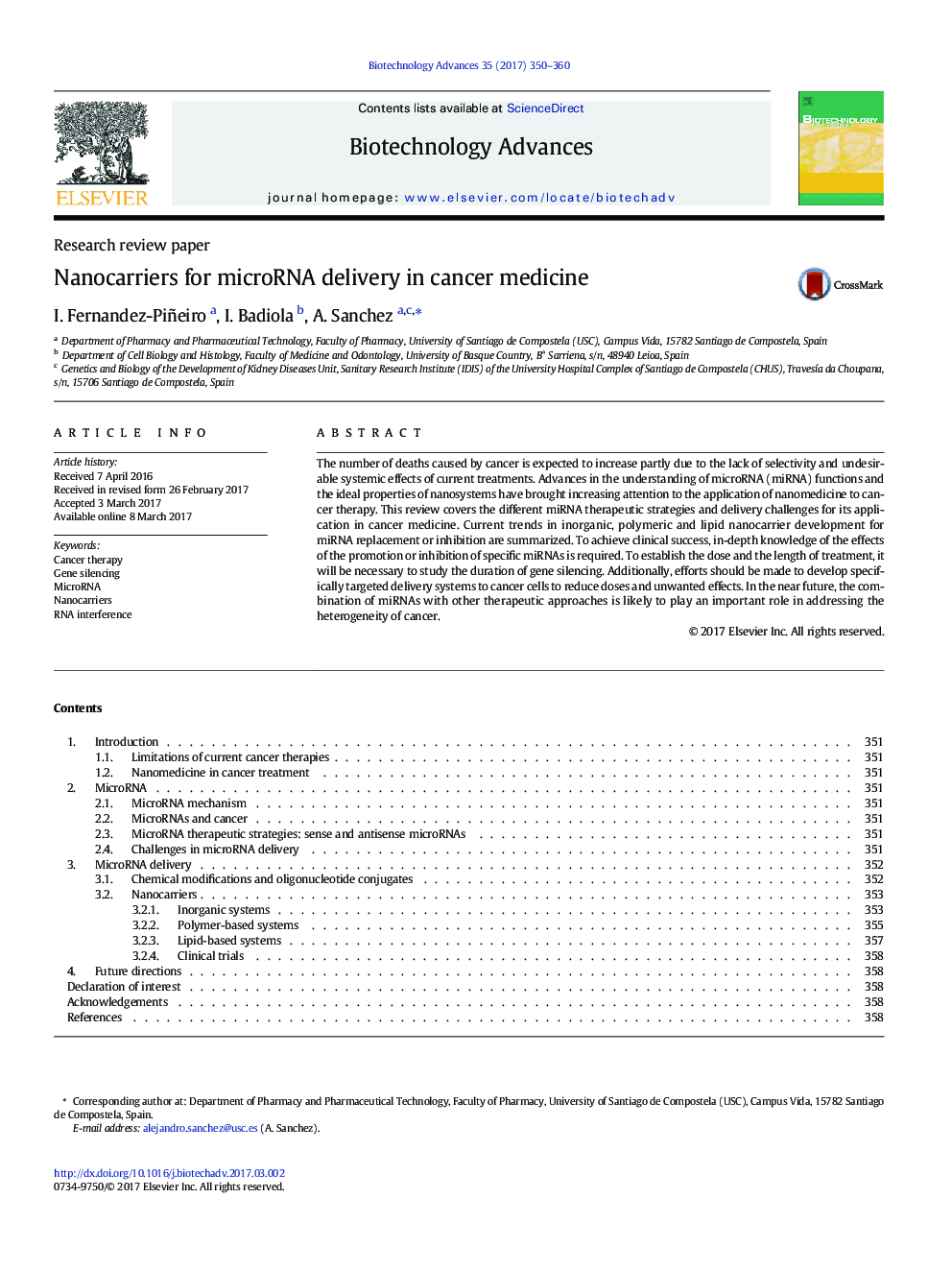| Article ID | Journal | Published Year | Pages | File Type |
|---|---|---|---|---|
| 4752532 | Biotechnology Advances | 2017 | 11 Pages |
The number of deaths caused by cancer is expected to increase partly due to the lack of selectivity and undesirable systemic effects of current treatments. Advances in the understanding of microRNA (miRNA) functions and the ideal properties of nanosystems have brought increasing attention to the application of nanomedicine to cancer therapy. This review covers the different miRNA therapeutic strategies and delivery challenges for its application in cancer medicine. Current trends in inorganic, polymeric and lipid nanocarrier development for miRNA replacement or inhibition are summarized. To achieve clinical success, in-depth knowledge of the effects of the promotion or inhibition of specific miRNAs is required. To establish the dose and the length of treatment, it will be necessary to study the duration of gene silencing. Additionally, efforts should be made to develop specifically targeted delivery systems to cancer cells to reduce doses and unwanted effects. In the near future, the combination of miRNAs with other therapeutic approaches is likely to play an important role in addressing the heterogeneity of cancer.
